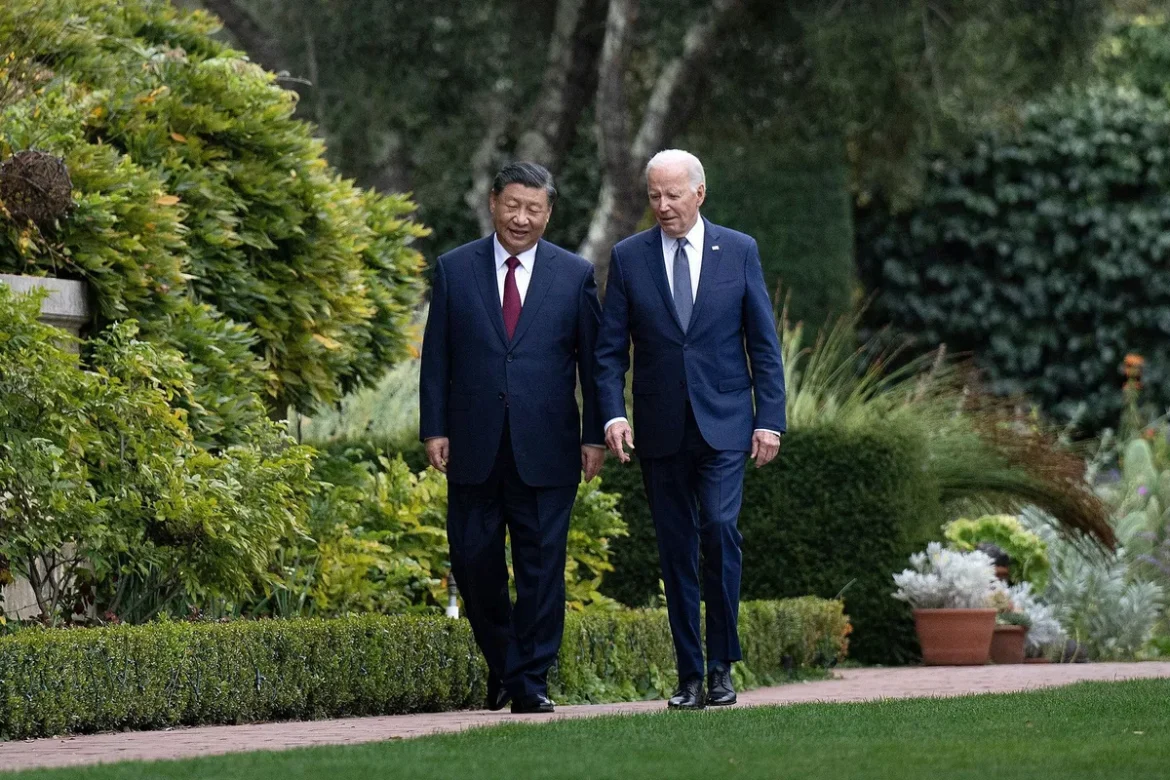U.S. President Joe Biden and Chinese President Xi Jinping reached a significant understanding on Saturday, agreeing that decisions regarding the use of nuclear weapons should always remain under human control. The White House emphasized this mutual commitment in a statement, marking a pivotal step in global nuclear and artificial intelligence (AI) discussions.
“The two leaders affirmed the importance of maintaining human oversight in nuclear weapons decisions,” the statement read. Additionally, they highlighted the need for careful and responsible development of AI in military applications.
China’s Perspective on the Agreement
A summary of the meeting from Chinese officials echoed the U.S. position. However, China’s foreign ministry has not yet commented on whether this shared view will lead to more concrete actions or future talks.
This dialogue represents a rare convergence of opinions between Washington and Beijing, touching on two critical global issues—nuclear arms and artificial intelligence—where meaningful progress has often been challenging.
Renewed Nuclear Arms Discussions
Washington has long sought to bring China into nuclear arms control discussions, given concerns over Beijing’s expanding nuclear arsenal. In November, official-level talks briefly resumed but have since stalled, with U.S. officials expressing frustration over China’s limited engagement.
Despite resuming semi-official exchanges, formal arms control negotiations remain uncertain. The Pentagon estimates that China currently possesses around 500 operational nuclear warheads, a figure projected to surpass 1,000 by 2030. For comparison, the U.S. and Russia each maintain more than 1,700 deployed warheads.
China’s Nuclear Modernization
China has been rapidly modernizing its nuclear program, investing in advanced technologies such as hypersonic glide vehicles and next-generation ballistic missile submarines. These developments enable China to maintain a nuclear triad—land, sea, and air-based capabilities—a defining feature of major nuclear powers.
China officially adheres to a policy of “no first use” and describes its nuclear deterrence as minimal. However, Western analysts have raised concerns about the pace of Beijing’s nuclear advancements. Chinese academics, in semi-official dialogues with U.S. experts, have dismissed these worries as exaggerated.
AI and Military Use: New Territory for U.S.-China Talks
While the U.S. and China began formal talks on artificial intelligence in May, those discussions had not previously addressed nuclear decision-making. This recent agreement adds a critical dimension to bilateral cooperation on AI, emphasizing the importance of minimizing risks in military applications.
Broader Implications
The Biden administration recently updated its nuclear policy, framing it as a general revision rather than a direct response to China or any specific threat. This broader context highlights Washington’s ongoing concerns over the nuclear capabilities of multiple nations, including North Korea and Russia.
The joint stance by Biden and Xi could pave the way for deeper dialogue, even as geopolitical tensions persist.
Stay connected to know more on arcnews.online for global news like Biden and Xi Agree on Human Control Over Nuclear Weapons Decisions. For videos updates visit our YouTube. Do subscribe to Arcnews to get latest updates directly in your mail box.
Have A Great Day.


